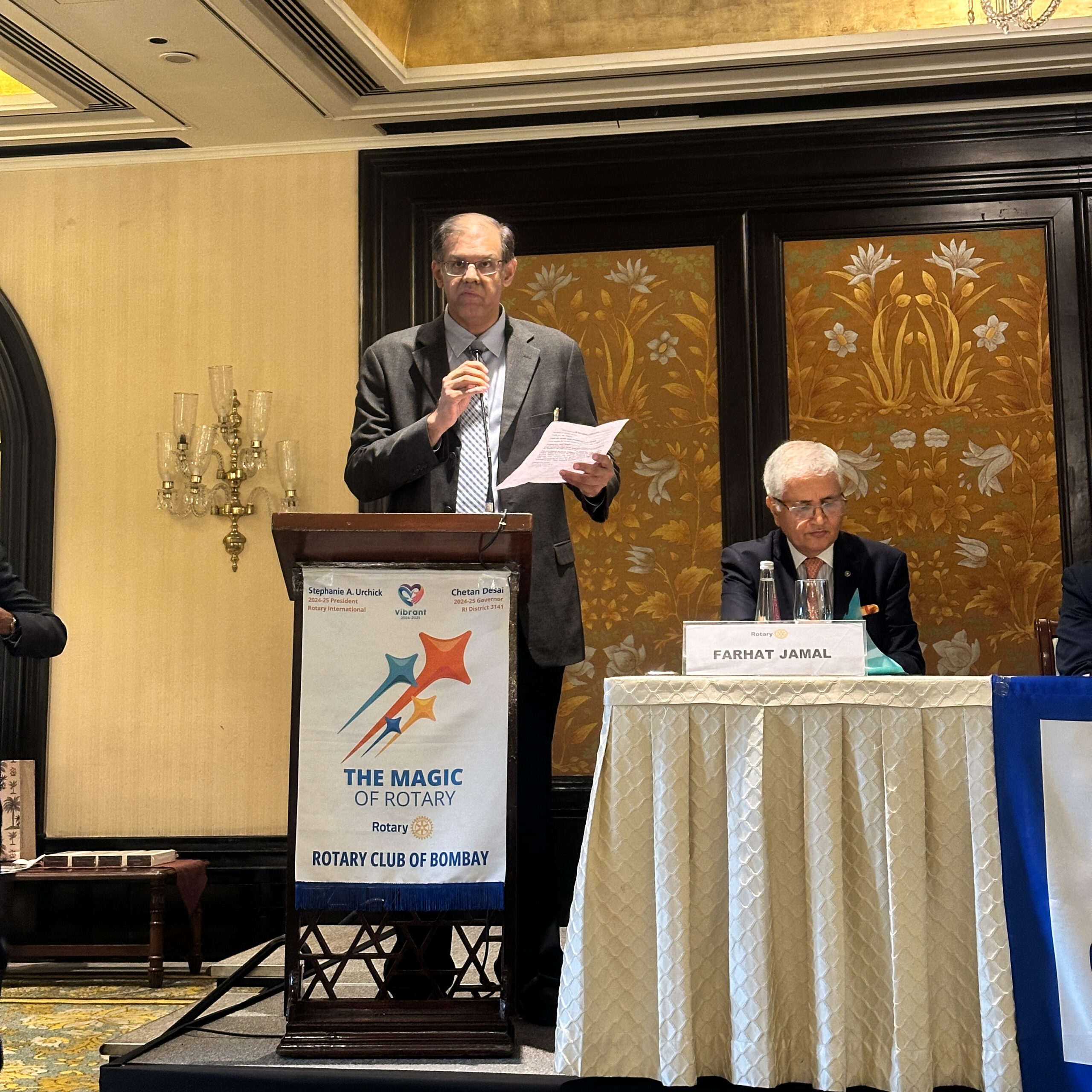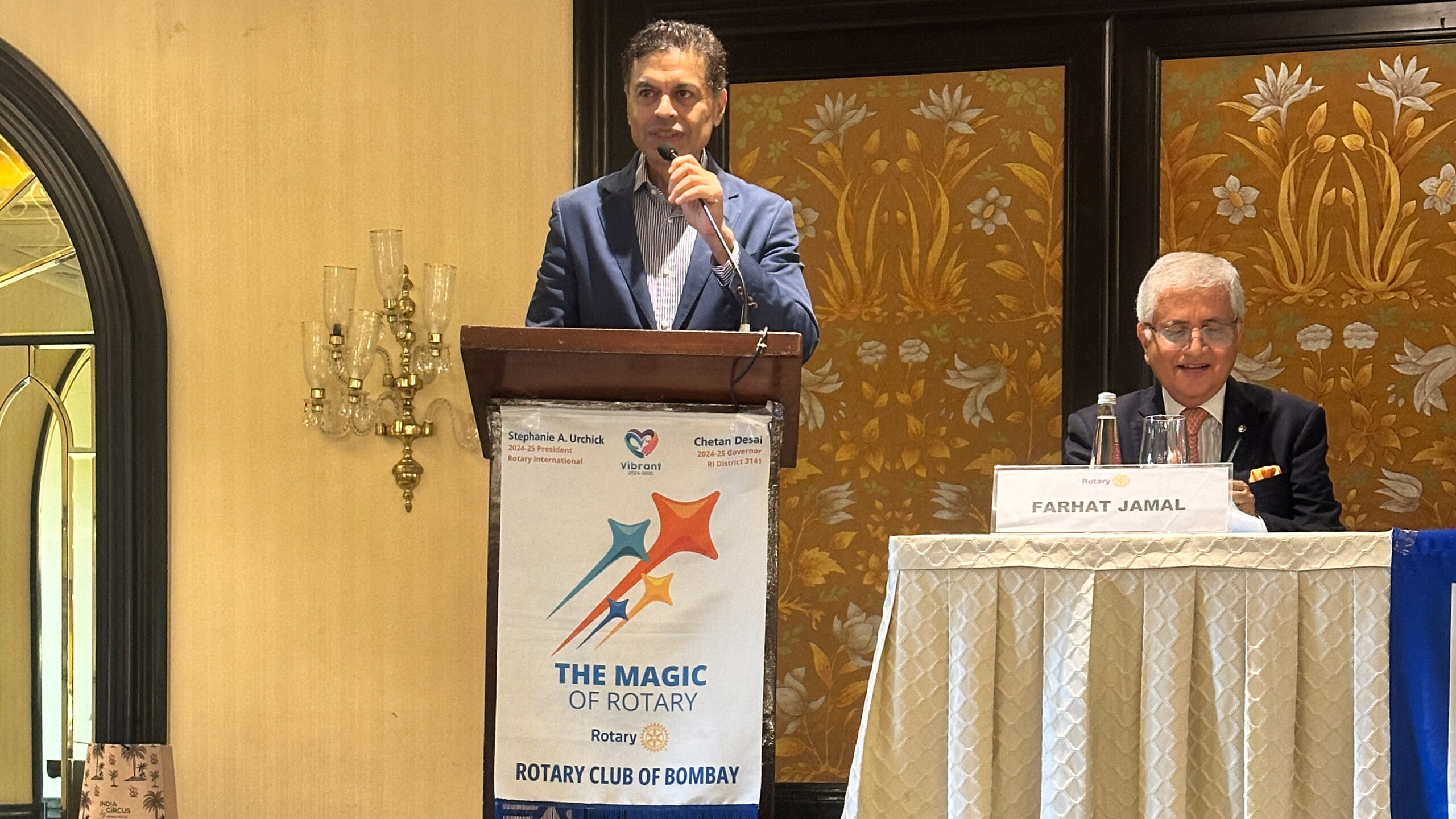Fareed Zakaria is a name synonymous with thought leadership in geopolitics, economics, and culture. With a Yale degree, a Harvard PhD, and a global following as the host of CNN’s Fareed Zakaria GPS, he has authored bestselling books such as The Post-American World and Ten Lessons for a Post-Pandemic World. Zakaria’s insights are sought after by policymakers, academics, and business leaders alike.
I had the privilege of attending his talk at the Rotary Club of Bombay, where he delved into the profound changes reshaping our modern world. His answers to some of today’s most pressing questions provided clarity and sparked deep reflection. Here’s a closer look at five essential questions he addressed during his thought-provoking session.
1. Why Are Incumbents Losing Elections Globally?
Zakaria identified a post-COVID phenomenon he called the “incumbency penalty.” The pandemic left governments grappling with economic disruptions, supply chain crises, and inflationary pressures. These challenges eroded voter confidence in incumbent leaders across the globe.
He cited examples like the UK’s Conservative Party, which suffered its worst electoral defeat in decades, and South Korea, where the opposition triumphed. Even in Canada, Justin Trudeau’s approval ratings hit historic lows.
India emerged as an outlier in this trend. While Narendra Modi faced reduced parliamentary seats, he retained power due to his unique ability to connect with voters. Zakaria highlighted Modi’s skill in navigating crises by projecting himself as both an outsider to traditional political elites and a competent leader in governance. This balance, Zakaria noted, has helped Modi weather challenges that toppled leaders elsewhere.
2. How Has Technology Reshaped Society and Culture?
Over the last 30 years, the rapid advancement of technology has transformed economies, workplaces, and cultures. Zakaria explained how globalization and automation disrupted traditional industries, especially in the industrial heartlands of the United States.
For example, factories that once provided stable jobs have moved overseas, replaced by gig economy roles and automation. This shift has not just economic but cultural consequences. Communities built around industries like steel and manufacturing have fragmented. Shared experiences, such as church visits or bowling leagues, have been replaced by Netflix and video games.
Zakaria argued that this cultural dislocation has left many yearning for a return to a simpler, more predictable past. This nostalgia fuels the rise of populist leaders, who position themselves as champions of the “forgotten people.” The challenge for society, he noted, is to balance technological progress with community cohesion.
3. What Divides American Voters Today?
In the United States, political affiliations are no longer defined by income levels but by education and cultural identity. Zakaria pointed out that college education is now the strongest predictor of voting behaviour.
He described two Americas: one that is urban, multicultural, educated, and progressive; the other, rural, less educated, and traditional. These divides are compounded by geography, religion, and gender. For example, urban areas lean Democratic, while rural regions strongly support Republicans. Similarly, women overwhelmingly support Democratic candidates, while men favour Republicans.
Zakaria explained that this polarization is mirrored in other Western democracies. The shift from economic to cultural identity as the basis for political alignment reflects broader global trends, with implications for governance and policy-making.
4. What Should India Prioritize for Growth?
Zakaria was clear: India’s growth depends on systemic reforms, not one-off deals with corporations. While agreements with Tesla or Apple make headlines, they do little to address the structural challenges hindering India’s progress.
He argued that India’s high tariffs and protectionist policies are counterproductive in a globalized economy. Most modern manufacturing relies on the seamless import and export of goods, yet India’s tariffs make this process cumbersome.
Zakaria urged policymakers to focus on lowering trade barriers, improving ease of doing business, and investing in education and skilling. A well-trained workforce, he noted, is the cornerstone of sustainable economic development. By creating a level playing field for all businesses, India can position itself as a global manufacturing powerhouse.
5. Is Media Bias Threatening Democracy?
On the contentious issue of media bias, Zakaria offered a balanced perspective. He acknowledged that journalists’ sociocultural environments often influence their reporting. For example, most reporters in the U.S. lean left due to their educational and urban backgrounds. This subtle bias can shape narratives, even unintentionally.
However, Zakaria distinguished between traditional outlets like The New York Times and politically motivated organizations like Fox News. The latter, he argued, prioritize partisan agendas over journalistic integrity.
Zakaria emphasized the importance of critical media consumption. Understanding the biases inherent in reporting allows readers to navigate the polarized media landscape with discernment, a skill essential for informed citizenship in today’s world.

Fareed Zakaria’s talk at the Rotary Club of Bombay was a masterclass in understanding the complexities of the modern world. His answers to pressing questions about politics, culture, and economics challenge us to think critically and act thoughtfully.
For Rotarians, this session underscored our responsibility to foster dialogue and solutions for the challenges shaping our times. Zakaria’s insights remind us that in an age of uncertainty, leadership rooted in clarity, adaptability, and action is more important than ever.
